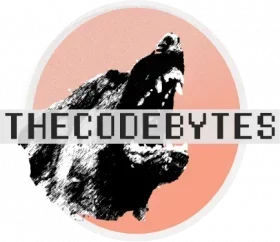AI Art is one of the biggest and fasting growing subdivisions of the artificial intelligence space. However, there are a lot of ethical issues arising from AI that should be addressed and understood. Is AI Art really unique or is it theft?
In this article, we hope to clear up some of the confusion about AI Art. Including whether or not it is actually theft.
How Does AI Artwork Work?
Before we jump into the ethical reasons for whether or not AI Art is stolen art, we first need to understand how AI works.
To begin, for an image generator to be able to create images, it needs a massively diverse training set of images to learn from. We are talking about millions or even billions of images that have been scraped from the internet. In addition to images, these training models usually also need text descriptions. These would be associated with the images to help distinguish what is what. If you know a bit about HTML, you can imagine how this works. Many of these descriptions are often taken from the alt tags associated with images on websites.
What Isn’t Happening With AI Art
This is where most people get confused. Many people understand that these ai art generators are taking millions of images and using them to create new artwork. Which sounds like theft. However, people also assume these art generators are copying pixel for pixel from multiple images to create a single image.
This would be plagerism. However, this is also not the case.
What Is Happening With AI Art
What AI Art AI is actually doing is learning from these images. A big difference between copying and pasting.
Taking in millions of images on the internet and learning what certain objects and ideas look like based on these images is different from using those exact images to create something else. The deep learning model has hundreds of dimensions and it uses these dimensions to make sense of certain objects. This is how the AI models know the difference between a robot and a lake, for example. What these models are using is latent space, and you can learn more about it here.
These mathematical models then go through a process called diffusion to take these mathematical ideas and turn them into something a human would understand.
This is why, even if given the same images, two models will produce different results. Simply because they will learn differently and randomization.
So, Is AI Art Theft?
Based on our understanding of AI art above, these AI models are not actually stealing any images or directly using them to create art. They are simply analyzing the images, learning from them, and then taking what they have learned to create something new. From an ethical standpoint, how is this any different from what a human artist does?
However, the argument can be made that AI art is being used to create artwork in someone else’s style. A serious concern even before AI art was an option. The problem with AI is that now you don’t need the skills and the time it takes to steal someone else’s ideas. Anyone with a computer and an internet connection can do it for free. That’s the real issue.
Summary
Ultimately, to say AI art is theft just isn’t true. AI art-making models are a tool and it is within the hands of the user to either use them ethically or unethically. These AI art-generating models are not directly stealing other’s artwork or images to create their own, they just use them to learn. Similar to any artist. However, if you ask the AI to make art in the style of a famous artist, it could be seen as unethical. That being said, there is nothing stopping a human artist from doing the same thing.
Maybe the problem is that AI has opened the doors of being an artist to those of which who don’t understand or respect what it means to be an artist. However, from my personal perspective, there is nothing more or less ethical about AI art that didn’t already exist in the art world before. AI just made the ability to create unethical art a billion times faster and easier to do.
What are your thoughts? Do you think AI is ethical or should it be banned for good?
